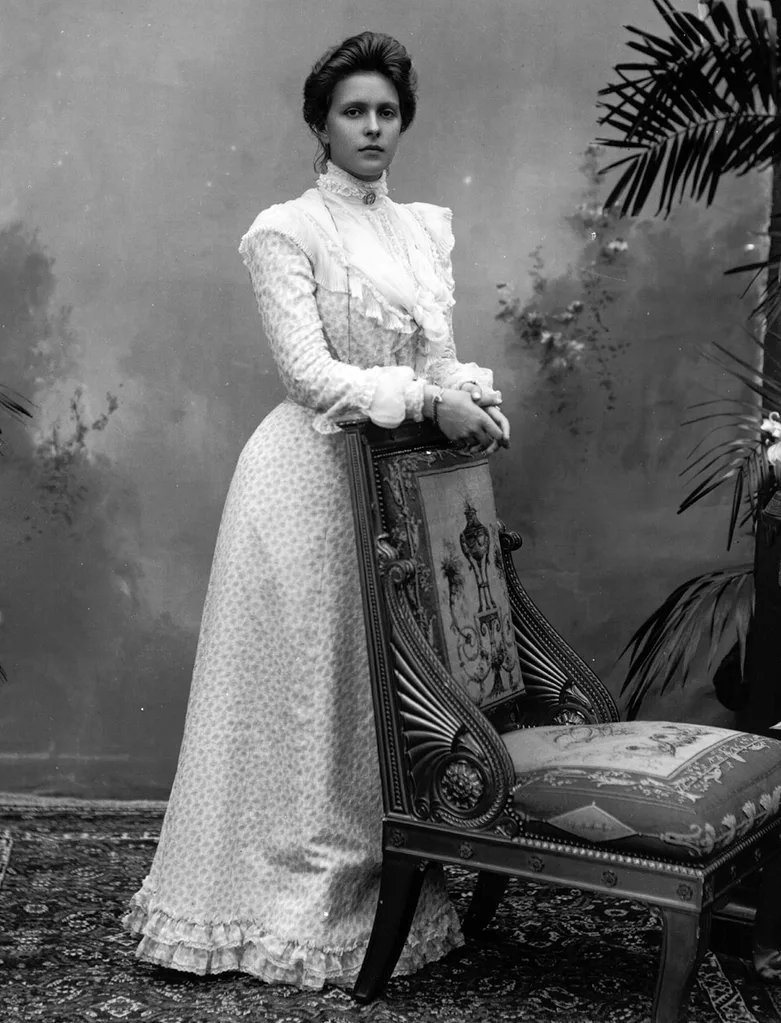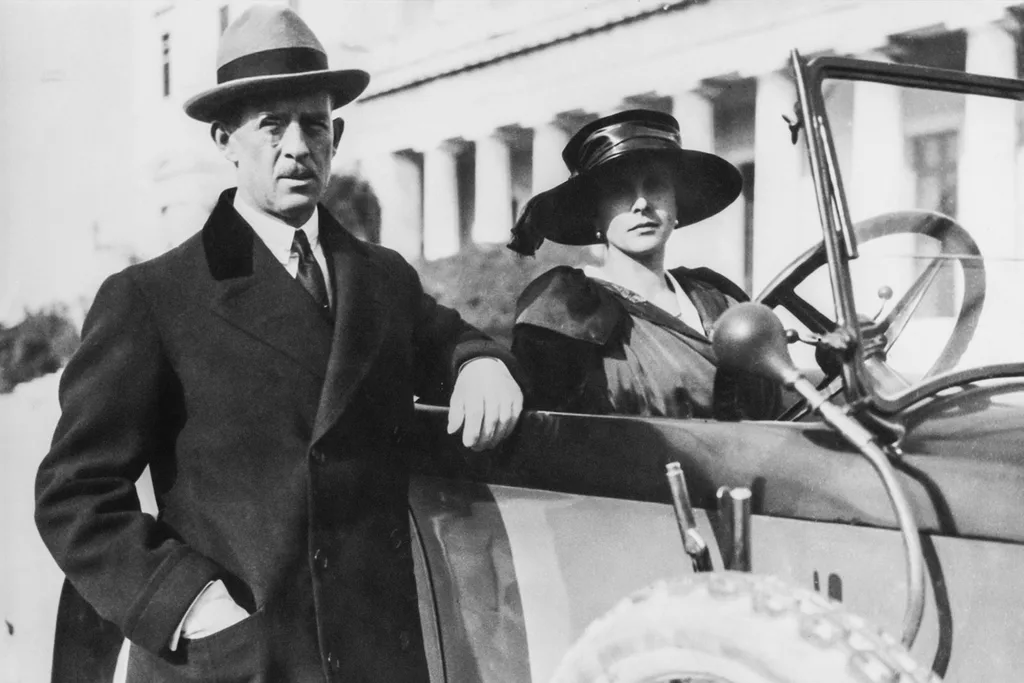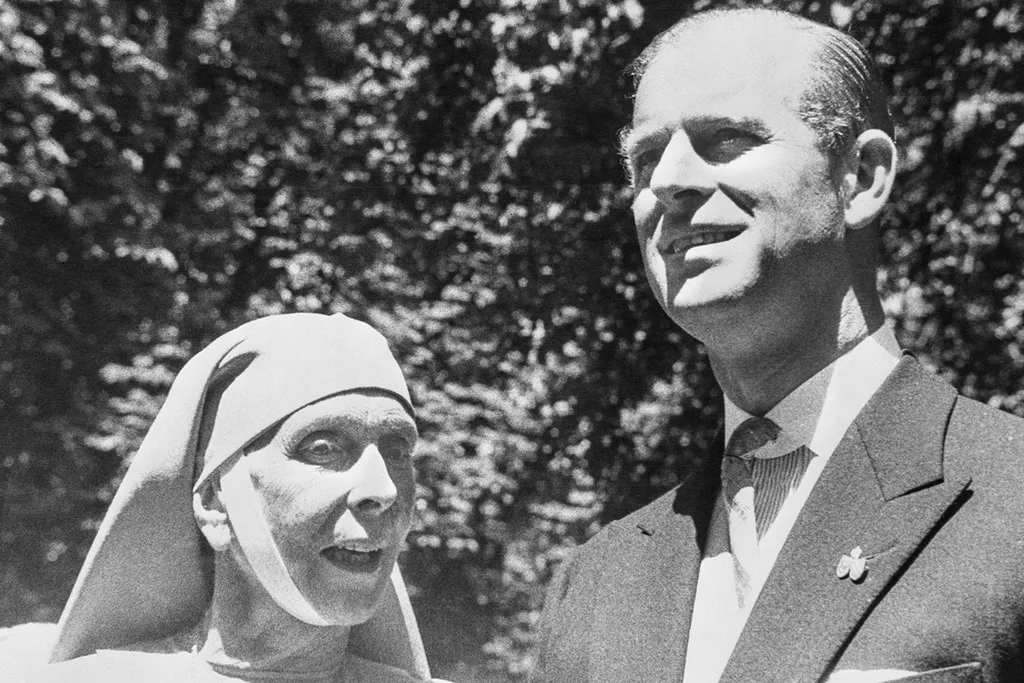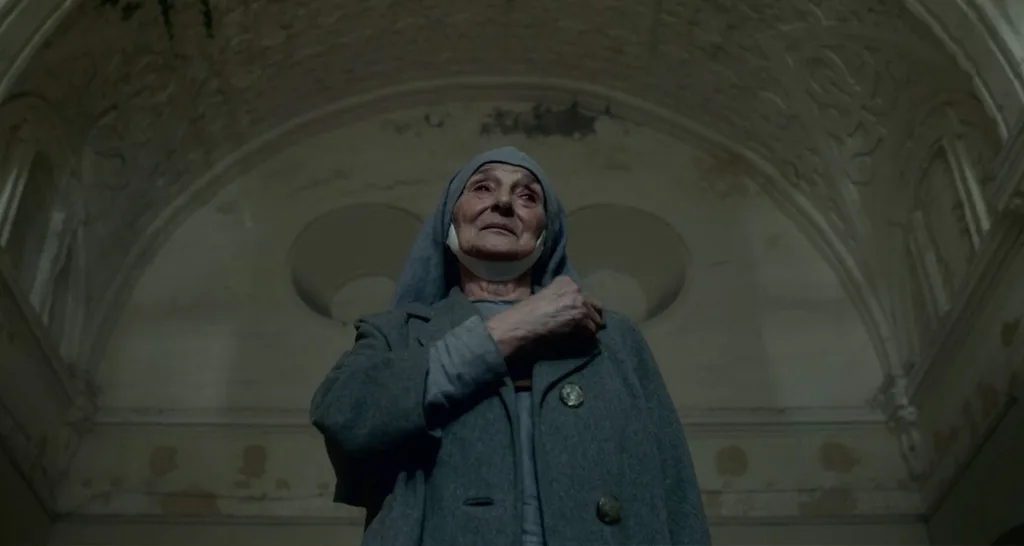From the time she was born in Windsor Castle in 1885, Princess Alice of Battenberg was no ordinary royal.
A great-granddaughter of Queen Victoria, she was raised as an English princess, despite both her parents being German. Born deaf, Alice had become a fluent lip–reader by the age of 8 and could speak very clearly – in three languages, no less: English, German and French.
The princess’ life took a dramatic turn when, at just 17, she fell in love with Prince Andrew, the son of the King of Greece, after their meeting at King Edward VII’s coronation in London.
“[Alice] was absolutely dotty about him,” recalled Alice’s niece, Lady Pamela Hicks. “Really, deeply in love.”

The pair wed in a civil ceremony in 1903, and Alice left everything she had known to move to Greece to join its royal family.
The early years of their marriage, however, were far from idyllic. The political climate in Greece was unstable, and Prince Andrew, an army commander, had fallen in and out of favour with the ruling government. During the Balkan War in 1912, Alice – who was now a mother of three girls: Margarita, Theodora and Cecilie – left her home to volunteer as a nurse and set up field hospitals. Her efforts earned her the Royal Red Cross in 1913.
“[It] would make you proud to hear the way everyone speaks of Princess Alice,” Nona Kerr, the lady-in-waiting of Alice’s mother, wrote in a letter to her employer while on a visit to Greece. “She has done wonders.”
In her letters, Nona added that Alice “simply can’t stop doing things”. It’s likely Alice was suffering from mania, possibly triggered by sleep deprivation, hunger, cold, exposure, and PTSD.

It was also during this period that her father-in-law, King George of Greece, was assassinated.
By 1914 Alice’s family had grown again with the birth of her fourth daughter, Princess Sophie.
World War I had begun – and despite Andrew’s brother, King Constantine of Greece, declaring neutrality of his country, after Andrew made numerous visits to Great Britain, a rumour began that he was a German spy. By 1917, the whole Greek royal family was temporarily forced to flee the country.
Their eventual return didn’t last long. In 1922, when their fifth child, Prince Philip, was 18 months old, they were exiled again due to Andrew’s involvement in the Greco-Turkish War where he was arrested and found guilty of “disobeying an order” in battle. The family were whisked away on a British warship to a safe haven near Paris, with Philip bundled into a makeshift cot which was made from an orange crate.
The years of living in fear and uncertainty led the princess to seek comfort in religion, and she was seen to lie on the floor “so she could receive messages from the spirit world”. She told Andrew’s cousin that she was a saint, carrying sacred objects around the house with her in order to banish evil influences.

In the years that followed, her mental health deteriorated. She was diagnosed as schizophrenic and taken to a Berlin clinic, where her womb was blasted with X-rays to cure her frustrated sexual desires.
Prince Philip was just 9 years old when his mother was sent to the clinic. He had been taken by his grandmother for a picnic, and she was gone when he returned.
“It was literally a car and men in white coats, coming to take her away,” explains Alice’s biographer Hugo Vickers.
When that treatment failed, the 45-year-old mother of five was admitted to a Swiss psychiatric clinic, where she reportedly remained a “prisoner” for almost three years.
“It was rather hushed up,” recalled Alice’s niece, Countess Mountbatten.
“I think my aunt would have suffered very much.”
This event marked the end of her once-close family life. Her husband disappeared to the South of France with his mistress, and Philip was sent to live with Alice’s relatives in England. Her girls, meanwhile, were aged 16 to 25, and by 1932, were married – two to German Nazis.

That same year, Alice was released, but remained estranged from her son until 1937.
“It’s simply what happened,” Prince Philip later said. “The family broke up. My mother was ill, my sisters were married, my father was in the South of France. I just had to get on with it. You do. One does.”
The mother and son reunited in the most tragic of circumstances; the funeral of Cecilie, who had been killed in a plane crash at the age of 26. Alice’s daughter had died along with her husband, two young sons and a newborn, who is thought to have been delivered mid-air.
With the Greek monarchy restored in 1935, Alice returned to Athens, only to find herself stranded there when it became occupied by the Nazis during WWII. Meanwhile, her sons-in-law were fighting for the Germans, and her own son was on the opposing side of the Allied Forces in the British Royal Navy.
Her brother, Lord Mountbatten, sent her supplies to help her survive, but she selflessly distributed the food to those in need instead. The charitable princess even hid a Jewish family, the Cohens, in her home. When suspicious Gestapo officers asked to search it, she fended them off by pretending to not understand them because she was deaf.
“We all owe our existence to the courage of Princess Alice,” one of the descendants, Philippe Cohen, told Prince William when he made a public visit to his great-grandmother’s crypt in Jerusalem.
“She was amazing, my grandmother,” said Prince Charles, who also visited Princess Alice’s crypt during a private trip in 2016. “She took them in during the Nazi occupation. She never told anybody, she didn’t tell her family for many years.”
In 1993, Alice was posthumously honoured as Righteous Among The Nations – the highest Israeli honour to non-Jews who risked their lives during the Holocaust.
“I suspect that it never occurred to her that her action was in any way special,” Prince Philip said. “She was a person with deep religious faith and she would have considered it to be a totally human action to fellow human beings in distress.”
Following the war, Alice turned her back on the trappings of royal life by selling all her jewels and establishing her own sisterhood of nuns, the Christian Sisterhood of Martha and Mary. In Athens, she built a convent and an orphanage to help those in need.
A few of her precious jewels were handed down to Philip, who used diamonds from a tiara in the custom–made engagement ring he gave to Elizabeth.
When a Greek military coup broke out in 1967, Alice refused to budge from Athens until Prince Philip sent a plane, along with a special request from the Queen, to bring her to Buckingham Palace. She remained there for the final two years of her life.
“They say you could always tell when she was coming along the corridor because of the whiff of Woodbines [cigarettes] in the air,” recalled Prince Philip’s biographer, Gyles Brandreth. “The idea of the Duke of Edinburgh’s mum, dressed as a nun, sucking on her Woodbine … it’s wonderful!”
Just before her death in 1969 at the age of 84, she left a loving note to her son: “Dearest Philip, be brave, and remember I will never leave you, and you will always find me when you need me most. All my devoted love, your old Mama.”










